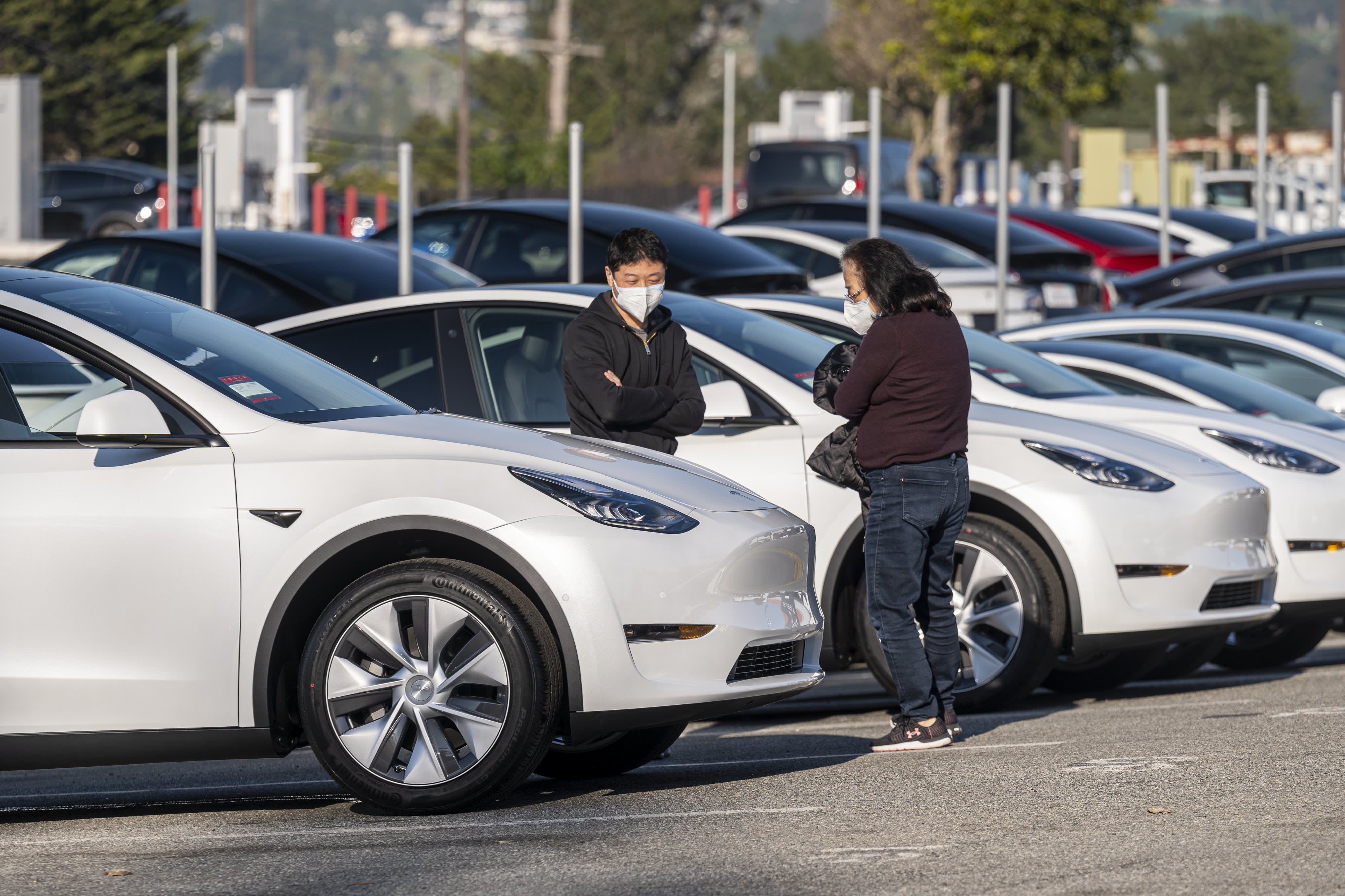Tesla will recall software from 53,822 of its Model S, X, 3 and Y vehicles in the U.S. to eliminate a feature that let cars automatically roll through stop signs, according to records published today by the National Highway Traffic Safety Administration.
These cars have a relatively new version of the company’s Full Self Driving Beta (or FSD Beta) software installed.
Newer versions of FSD Beta (2020.40.4.10 or later) subject to the recall gave drivers with an “assertive mode” setting for their driver assistance software, including a “rolling stop” function that let their cars automatically “roll through an all-way stop intersection without first coming to a stop,” the NHTSA notices said, which “can increase the risk of a crash.”
Tesla wrote in its communications to NHTSA, “As of January 27, 2022, Tesla is not aware of any warranty claims, field reports, crashes, injuries or fatalities related to this condition.”
Tesla will remove these features through a free over-the-air software update, meaning customers don’t have to take the cars to a store or service center.
The FSD Beta program gives Tesla drivers early access to new features that aren’t completely debugged yet, including “autosteer on city streets,” which lets drivers automatically navigate around complex and crowded urban environments without moving the steering wheel with their own hands. Despite the name, it does not make Tesla vehicles autonomous.
Any Tesla owners who buy the company’s $12,000 premium driver assistance system, or subscribe to it for $199 a month, can join the FSD Beta program. They need to maintain a high driving safety score, as determined by Tesla software, before gaining access. The company does not require FSD Beta drivers to have any safety training or professional certifications to use the unfinished features on public roads in the US.
On January 26, in its most recent earnings update, Tesla revealed that it has expanded this controversial testing program to around 60,000 vehicles in the U.S.
Government agencies are putting increasing scrutiny on FSD Beta. For example, NHTSA is investigating whether FSD Beta may be in part or fully to blame for a Model Y collision that occurred in Brea, California, in November 2021, and the California DMV is reviewing Tesla’s use of the term “Full Self-Driving” to describe and sell it to customers.
On the earnings call, CEO Elon Musk said, “Over time, we think Full Self-Driving will become the most important source of profitability for Tesla.” He added, “My personal guess is that we’ll achieve Full Self-Driving this year at a safety level significantly greater than a person. So the cars in the fleet essentially becoming self-driving via software update, I think, might end up being the biggest increase in asset value of any asset class in history. We shall see.”
Musk has been promising shareholders and Tesla fans an autonomous vehicle since at least 2016, but the company has only ever produced driver assistance systems that it says are level 2, meaning a human driver needs to remain attentive to the driving task with hands on the wheel while using the car and its systems.
The company did not respond to a request for comment on the recall, or the 6,178 vehicles referenced in their fourth-quarter shareholder deck that were not accounted for in the notice that Tesla filed to NHTSA dated January 27, 2021.
Tesla shares were unbowed by news of the software recall, and were trading down less than a point in the first half of trading on Tuesday.
